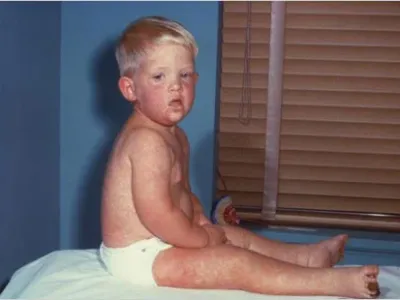A new report on three MERS-CoV infections identified in Tunisia last year points up the difficulty of identifying the disease in some cases.
The first patient in the cluster, a 66-year-old man, tested negative for the virus while he was critically ill, but a test of his stored serum months after his death was positive, says the report published yesterday in Emerging Infectious Diseases.
The man fell ill in April 2013 on returning home to Tunisia after a 5-week trip that included a visit to his daughter in Qatar and a pilgrimage to Mecca. He was hospitalized with dyspnea on May 6 (2013) and died 4 days later. A reverse transcription polymerase chain reaction (RT-PCR) test on lung fluid during his hospitalization was negative for MERS-CoV (Middle East respiratory syndrome coronavirus).
Later, on Aug 5, the US Centers for Disease Control and Prevention ran an RT-PCR test on a serum sample collected from the patient the day before his death, the report says. The result was positive, and genetic sequencing of the isolate showed that it was similar to geographically diverse MERS-CoV isolates from Saudi Arabia and the United Arab Emirates.
The authors write that the diagnosis by PCR of a serum sample that was collected 10 days after illness onset and tested weeks later "highlights the value of testing serum samples for MERS-CoV RNA." They add, "This finding also provides valuable information about viremia in MERS CoV–infected patients, contributing to our understanding of the natural history of MERS-CoV infection and kinetics of virus shedding."
The authors speculate that the man's preexisting diabetes and his early treatment with a corticosteroid (dexamethasone) might have made his illness worse.
Also infected were the man's 34-year-old son, who was a nurse who cared for him both at home and later in the hospital, and his 30-year-old daughter from Qatar, who traveled to Mecca with him.
Both of them got sick shortly after their father died, and both tested positive for MERS-CoV by RT-PCR. The daughter received oseltamivir and recovered, while the son recovered without treatment. The report does not explain why she was treated with oseltamivir, an influenza drug that has not been reported to be useful against MERS-CoV.
Contact tracing included four other family members, including the first patient's wife, and eight healthcare workers who had reported possible symptoms. Respiratory samples from all of them tested negative by RT-PCR. The samples were taken an average of 5 weeks after contact with the patients.
The authors comment that the son and daughter, the only contacts who became infected, had prolonged close contact with their father. But they say the negative test results in the other contacts should be interpreted cautiously because the samples were collected so long (5 weeks) after the individuals were exposed. They also observe that serologic testing could have shed more light on MERS-CoV transmissibility, but it was not done.
No Saudi cases reported
In other MERS developments, Saudi Arabia's Ministry of Health (MOH) reported no new MERS cases and no deaths today. That follows two new cases yesterday, none on Jun 8, and four on Jun 7.
Meanwhile, the World Health Organization's representative in Saudi Arabia said no new cases have been identified in the country's hospitals in the past 3 weeks, according to a Saudi Gazette story yesterday.
The official, Eiz Al-Deen Muhsini, was attending a meeting in Jeddah on hospital accreditation, the story said. He said a number of teams from the MOH and WHO are visiting hospitals in the country to raise staff members' awareness of MERS-CoV.
Also today, an Arab News story quoted Saudi Health Minister Adel Faquih about the MOH's revelation last week of 113 previously unreported MERS cases, including 92 deaths.
Speaking at the same meeting as Muhsini, Faquih said the deaths had been discovered "following extensive verification and re-evaluation of previous medical records," according to the story. He did not mention retesting of stored clinical samples from those patients.
The story said further that Faquih commented that the deaths "had occurred in hospitals which were not under the purview of the Health Ministry," but the report did not elaborate on that point.
The ministry so far has revealed no details about the belatedly reported cases.
MERS death in Algeria
In another development, a 66-year-old man who was one of Algeria's first two MERS patients died yesterday, according to a Reuters story today. He and a 59-year-old man were found to be infected after recent pilgrimages to Saudi Arabia.
Algeria's health ministry said the 66-year-old died at a hospital in western Algeria where he had been treated since his case was confirmed, Reuters reported. The story said the other patient is still hospitalized but has improved.
See also:
Jun 9 Emerg Infect Dis report
Jun 9 Saudi Gazette story
Jun 10 Arab News story
Jun 10 Reuters story























